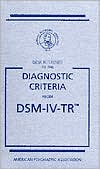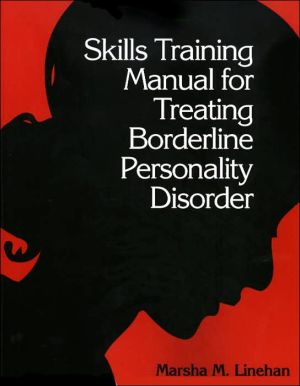Brief Cognitive Hypnosis: Facilitating the Change of Dysfunctional Behavior
Search in google:
"Brief Cognitive Hypnosis gives a unique and refreshing presentation of various applications of hypnosis in clinical practice. Most importantly this book focuses on brief clinical interventions which are both effacacious and cost effective. The authors clearly describe a number of techniques for correcting dysfunctional behaviors such as irritating and/or self-destructive habits, ameliorating anxiety disorders, treating pain, and managing troublesome side effects of various medical treatments and procedures. I highly recommend this book as a valuable resource for all clinicians who are faced with helping their patients deal with such problems." - Edward J. Frischholz, PhD, Fellow and Past-President Divison 30 (Society for Psychological Hypnosis) American Psychological Association Past-Editor, American Journal of Clinical Hypnosis Fellow and Approved Consultant, American Society of Clinical Hypnosis"I wish I had said that. This book is clear, accurate, and explicated in a way that is indisputably better than any other texts on clinical hypnosis that I've read." - Dabney M. Ewin, MD, ABMH Past President of the American Society of Clinical Hypnosis Board Certified Diplomate of the American Board of Medical Hypnosis"[This book] is a magical addition to the field of Clinical Hypnosis. Two distinguished Board Certified Clinicians with over sixty years of combined clinical experience have provided a delightful book that will not only add to the experienced clinicians' skills, but provide a straightforward and practical approach for the neophyte in hypnosis." - William C. Wester, EdD, ABPP, ABPH Past President of the American Society of Clinical Hypnosis"This is a valuable book for clinicians. It is highly practical, 'user friendly', and explicates rapid treatment methods for the range of problems most commonly seen in our offices. I definitely recommend it." - D. Corydon Hammond, PhD, ABPH Past President of the American Society of Clinical Hypnosis Professor University of Utah School of Medicine"...Zarren and Eimer integrate traditional psychodynamic models of the unconscious and symptom-formation with modern cognitive theory, the outcome of which is a new model for the change process in therapy. With lucid description of their clinical methods and rich case illustrations the authors show how the hypnotic trance, along with careful attention to the wording of the hypnotic scripts, enable the patient to open to the possibility of genuine change." - Daniel Brown, PhD, ABPH Professor, Harvard Medical School and Simmons School of Social Work, Boston, Massachusetts Booknews Intended for experienced medical clinicians and advanced mental health practitioners and students, this practical guide to the use of hypnosis incorporates a cognitive perspective and a simple way of using verbal cues in brief psychotherapy. It also addresses the relationship between the patient and the clinician/therapist and the continuing interaction and learning encountered by both during the therapeutic process. In the 13 chapters, Zarren (a clinical social worker) and Eimer (a clinical psychologist) discuss fundamental concepts and essential tools, clinical applications, and smoking cessation and keys to change. Annotation c. Book News, Inc., Portland, OR (booknews.com)
ForewordPrefaceAn Important NoteAcknowledgmentsPt. 1Fundamental Concepts and Essential ToolsIntroduction: Brief Cognitive Hypnosis - A Powerful Tool for Brief Psychotherapy31Establishing the Therapeutic and Hypnotic Relationship132The Waking State Reframing Model303Change Language: General, Waking, Trance, and Posttrance State Reframing424Trance Induction: Design, Choice, and Administration585Self-Hypnosis for Continued Problem Resolution786Common Factors in Dysfunctional Behavior and the Creation of Double Binds907Dysfunctional and Therapeutic Rituals106Pt. 2Clinical Applications8Irritating Habits as Dysfunctional, Outdated Coping Skills1219More Complex Habits as Ways of Dealing with Anxiety and Stress14710Panic Disorders and Other Complex Anxiety-based Behaviors16911Medical Problems Including Pain, Preparing for Medical Procedures, Self-Healing, and Coping with Treatment Side Effects212Pt. 3Smoking Cessation and Keys to Change12A Single-Session Smoking Cessation Program24113Review: Keys to Change264References279Index288








